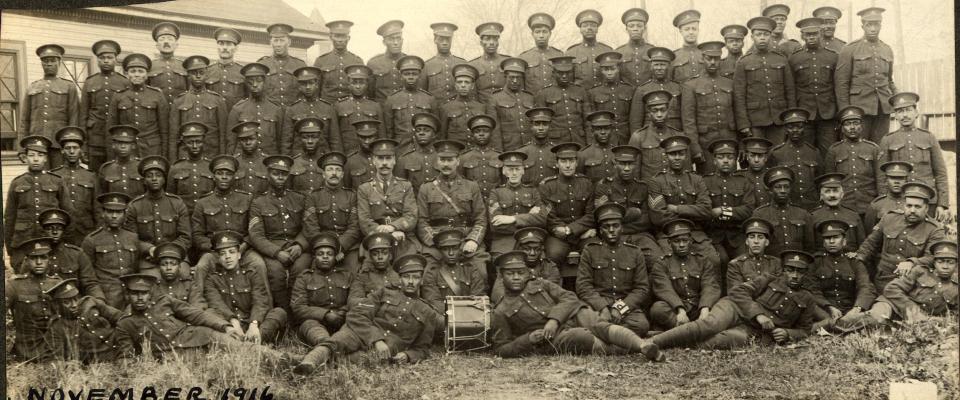PSAC welcomes the formal apology by the federal government for its racist treatment of the Nova Scotia-based No. 2 Construction Battalion during the First World War. This past weekend, descendants and family members of the Battalion gathered in Truro, Nova Scotia as Prime Minister Justin Trudeau delivered an official apology for the blatant anti-Black racism experienced by Canada’s first, and largest, Black military unit.
The No. 2 Battalion were vital in constructing trenches, roads, railways and maintaining the water supply to Canadian troops, yet faced segregation, a lack of proper medical care, rations and equipment, as well as other forms of racism and discrimination from Canadian military and government officials before, during and after their service. Trudeau declared that Canada “cannot ever let what happened to the No. 2 Construction Battalion happen again”.
Though the formal apology is a necessary first step, it must be followed by meaningful changes and redress. PSAC expects the apology to be the beginning of a series of concrete actions and reparations made by the federal government to remedy Canada’s history of anti-Black racism and slavery.
Anti-Black racism in Canada’s public service
The apology is in response to several calls for the federal government to acknowledge its long history of discriminatory treatment of Black public service workers, which has culminated in the Black Class Action lawsuit (BCA). The BCA represents current and former Black members of the federal public service who have experienced systemic racism and discrimination in the public service of Canada over the past fifty years. PSAC strongly supports the nearly 1,500 plaintiffs of the BCA, many of whom are PSAC members and union activists.
Lawyers representing the federal government have made several attempts to delay the hearings for the suit, and to argue that instances of anti-Black racism in the federal public service should be lumped together with other systemic discrimination cases the government is currently facing. So far, the court has denied the government’s claim that all cases of racism and discrimination can be heard together and have maintained that the Black Class Action must be argued as a separate case.
The court has given the federal government until October 1, 2022, to respond to the case.
Photo credit: Windsor Museum
 Member Login
Member Login



